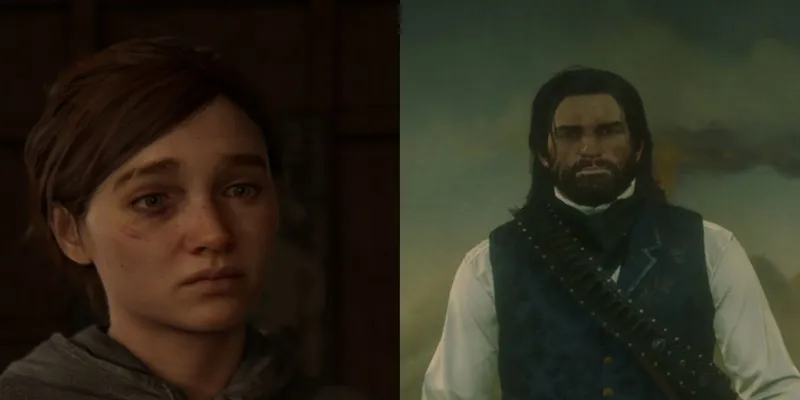The allure of well-crafted narratives often stems from endearing characters that capture our hearts and minds. This is evident in Naughty Dog's The Last of Us series, which features a memorable cast of characters that evoke a range of emotions from players. Similarly, Rockstar's Red Dead Redemption franchise introduces players to complex protagonists like John Marston, whose actions shape the intricate storyline of the game.
However, the dilemma arises when these beloved characters cast a shadow over the potential narratives of future installments. While retaining established characters may please fans, exploring fresh perspectives is vital for fostering innovation and avoiding creative stagnation.
Navigating Character Dynamics in The Last of Us
The Last of Us immerses players in the journey of Joel, a weapons smuggler tasked with escorting Ellie through a post-apocalyptic world infested with Infected. Despite Joel's morally ambiguous actions, players empathize with his complex backstory and the lengths he goes to for survival. The sequel's shift to Ellie's perspective sparked debates among players, highlighting the challenge of deviating from established protagonists.
Should a third installment be released, the franchise faces the dilemma of either continuing with existing characters or embracing new leads like Abby. The studio must tread carefully to maintain the delicate balance between fan expectations and narrative evolution.
Evaluating Creative Choices in The Last of Us
The decision to alter the narrative focus in The Last of Us elicited mixed reactions from players, underscoring the risks involved in deviating from established character arcs. While some viewed it as a bold move, others questioned the departure from familiar protagonists.
Red Dead Redemption 2: A Parallel Conundrum
In Red Dead Redemption, players embody John Marston, a conflicted anti-hero on a quest for redemption. The prequel, Red Dead Redemption 2, shifts the spotlight to Arthur Morgan, introducing a new dimension to the saga. However, future installments must grapple with the decision of continuing the Marston legacy or exploring uncharted narratives.
The prospect of featuring characters like Dutch or Sadie Adler in upcoming titles presents an opportunity for fresh storytelling but risks straying from the established Marston lineage. Rockstar faces the challenge of honoring past protagonists while charting new territories to captivate players.
The Legacy of Red Dead Redemption: A Character Conundrum
Jack Marston's potential as a protagonist raises questions about the cyclical nature of violence and redemption within the Marston family. While his story offers intriguing possibilities, the risk of repetition and player disconnection looms large.
Both Naughty Dog and Rockstar have set a high standard for narrative-driven games, prompting them to navigate the intricate balance between honoring iconic characters and venturing into unexplored narratives. The future success of their franchises hinges on striking the right chord between nostalgia and innovation.

